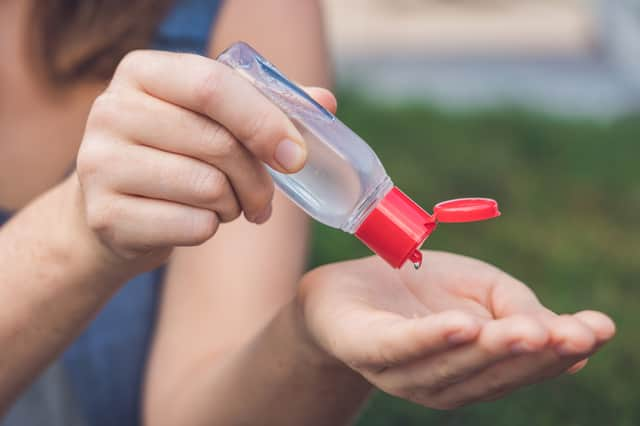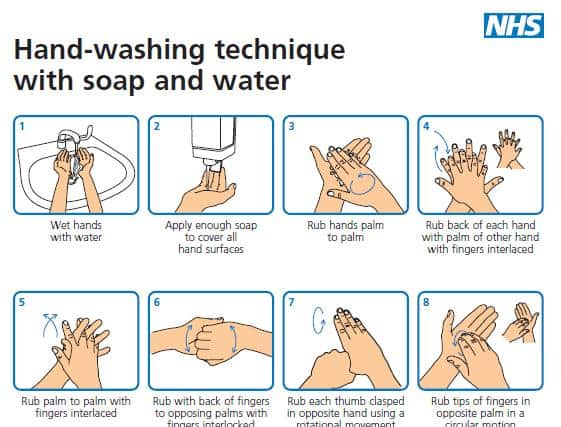Does hand sanitiser actually kill coronavirus? Here's everything you need to know


Supermarkets across the UK have begun limiting the amount of hand sanitiser each person can purchase after panic buying brought national shortages.
The unanimous advice from health agencies, doctors, and governments is that washing your hands thoroughly with soap and water is far more effective than using hand sanitiser. Alcohol and antibacterial gels, sprays, and wipes should only be used if hand washing facilities are not accessible.
Advertisement
Advertisement
The confusion around hand sanitisers is that there are certain viruses and diseases that cannot be eradicated by using alcohol gels, but can be by proper hand washing.


Norovirus and Colostridum Difficile, or C-diff, are common in hospital settings. In the case of these infections, many hospitals remove hand sanitiser from infected wards, prompting people to wash their hands rather than use the ineffective alcohol gels.
Bacteria vs viruses - how to keep safe
Bacterial infections are different to viral ones. Your body is full of bacteria that keeps you alive. Bacteria are single celled organisms that multiply independently, and some can cause infections and illnesses. Common bacterial infections are things like food poisoning or pneumonia.
According to Dr Peter N Wenger, an associate professor in the departments of Preventive Medicine and Community Health and Pediatrics at the University of Medicine and Dentistry in New Jersey, "Very thorough hand-washing washing vigorously and between the fingers is the most effective way to get rid of bacteria and debris.
Advertisement
Advertisement
"Not all of the bacteria on your hands are bad. Your body needs bacteria to maintain a healthy, balanced environment on your skin."
Proper hand washing technique must be followed to protect yourself from coronavirus and other pathogens (Image: NHS)
Viruses are like parasites. They are smaller than bacteria and need a host to multiply in. Viruses cannot be killed off with antibiotics. Common viral infections are the flu with more extreme viruses such as Covid-19.
Alocholic gels do kill some viruses and bacteria, but since Covid-19 is a new disease, no one can be completely sure that it will kill all of that virus off of your hands.
Advertisement
Advertisement
Everyday soap and water, including antibacterial soaps, are the best defence against both bacterial and viral infections. You need to keep washing your hands, especially between the fingers, for up to 30 seconds and ensure they are dried properly, as wet hands attract more bacteria and viruses.
Coronavirus: the facts
What is coronavirus?
COVID-19 is a respiratory illness that can affect lungs and airways. It is caused by a virus called coronavirus.
What caused coronavirus?
The outbreak started in Wuhan in China in December 2019 and it is thought that the virus, like others of its kind, has come from animals.
How is it spread?
As this is such a new illness, experts still aren’t sure how it is spread. But.similar viruses are spread in cough droplets. Therefore covering your nose and mouth when sneezing and coughing, and disposing of used tissues straight away is advised. Viruses like coronavirus cannot live outside the body for very long.
What are the symptoms?
Advertisement
Advertisement
The NHS states that the symptoms are: a dry cough, high temperature and shortness of breath - but these symptoms do not necessarily mean you have the illness. Look out for flu-like symptoms, such as aches and pains, nasal congestion, runny nose and a sore throat. It’s important to remember that some people may become infected but won’t develop any symptoms or feel unwell.
What precautions can be taken?
Washing your hands with soap and water thoroughly. The NHS also advises to cover your mouth and nose with a tissue or your sleeve (not your hands) when you cough or sneeze; put used tissues in the bin immediately and try to avoid close contact with people who are unwell. Also avoiding touching eyes, nose and mouth unless your hands are clean.
Should I avoid public places?
Most people who feel well can continue to go to work, school and public places and should only stay at home and self isolate if advised by a medical professional or the coronavirus service.
What should I do if I feel unwell?
Don’t go to your GP but instead call NHS 111 or look online at the coronavirus service that can tell you if you need medical help and what to do next.
When to call NHS 111
Advertisement
Advertisement
NHS 111 should be used if you feel unwell with coronavirus symptoms, have been in a country with a high risk of coronavirus in the last 14 days or if you have been in close contact with someone with the virus.
Sources: World Health Organisation and NHS